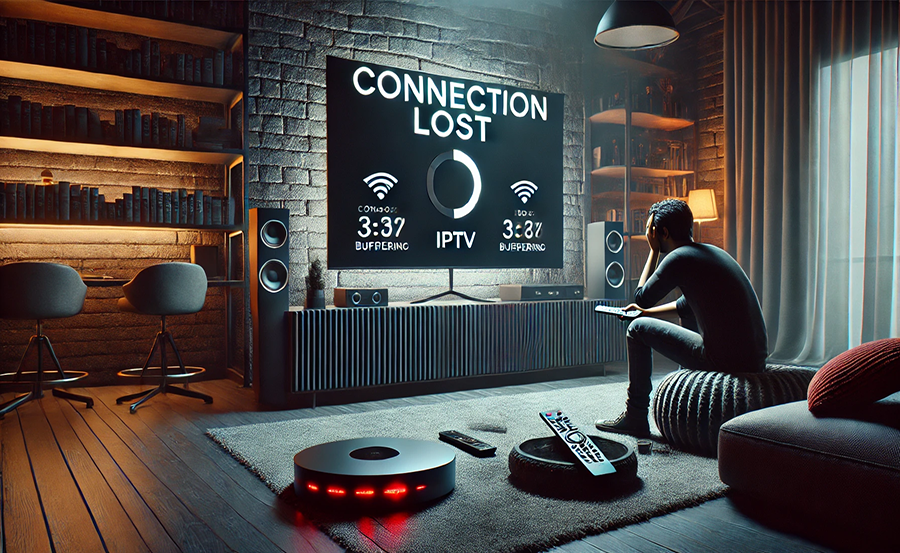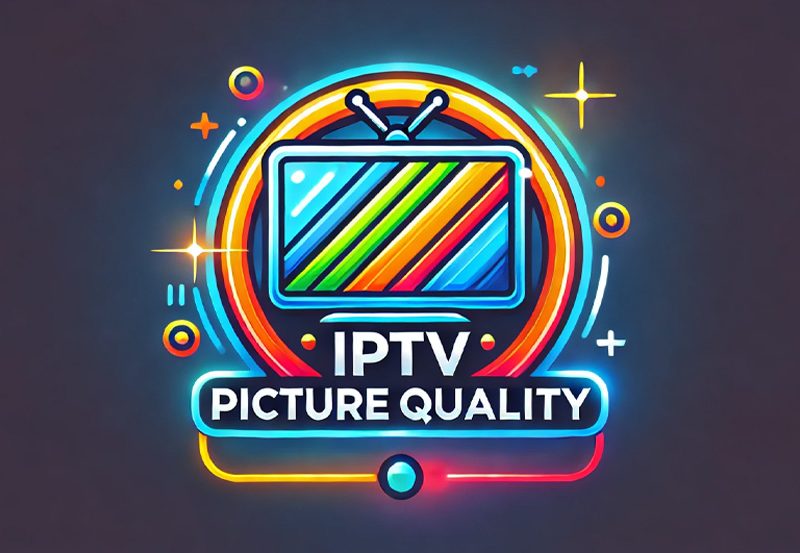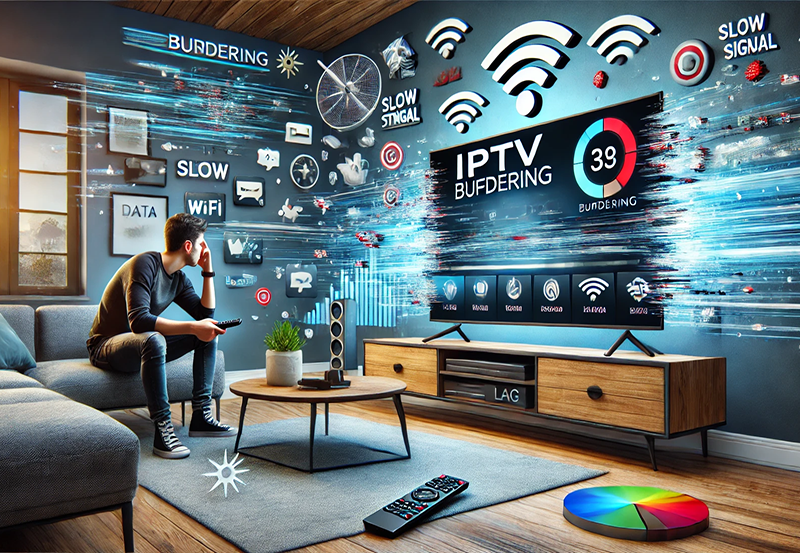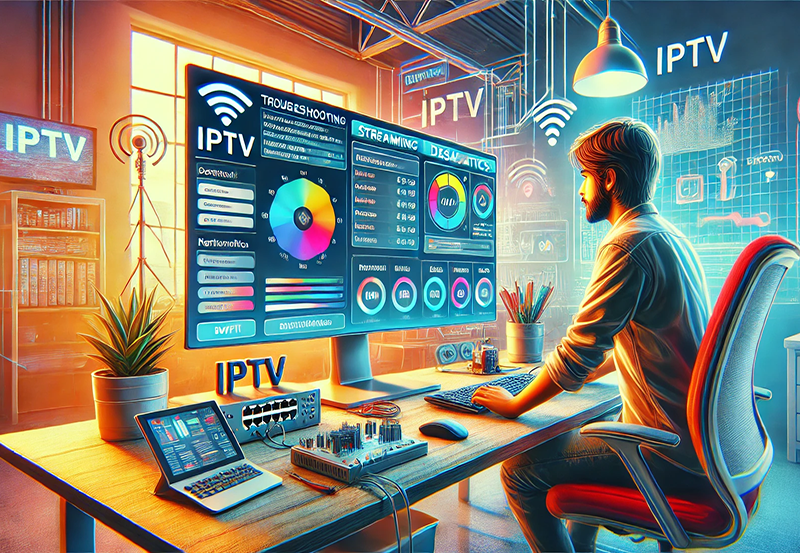In today’s fast-paced digital age, IPTV (Internet Protocol Television) has emerged as a popular alternative to traditional broadcasting methods. Offering users an expansive array of channels and on-demand content, it’s no wonder why this technology is so appealing. Yet, like any other technology, IPTV can occasionally encounter some connection hiccups. Understanding these issues can help users troubleshoot effectively, ensuring a smooth and enjoyable viewing experience. If you’ve ever been frustrated by buffering, freezing, or poor-quality streams, worry not. We’re here to help guide you through the troubleshooting process.
Understanding the Root Causes of IPTV Connection Issues
Common Connection Problems
First things first, it’s essential to recognize the typical challenges IPTV users face. Connection problems can manifest in various forms, each affecting the viewing experience differently. Here are some common issues:
- Buffering or lagging streams
- Channels not loading or freezing
- Audio and video out of sync
- Server errors or inability to connect
These issues can be frustrating, especially when watching your favorite show or a crucial sports match. The good news? Most IPTV setbacks can be diagnosed and fixed with a few simple steps.
Identifying Network-related Issues
Internet connection woes are a common culprit when it comes to IPTV troubles. If you’re facing connection problems, start by checking your internet speed. Often, inadequate bandwidth can lead to buffering and lag. Buy 1 Year IPTV Subscription and Enjoy Unlimited Content
Make sure your ISP is delivering the speed you’re paying for. Sometimes, resetting your modem or router can improve your connection. Also, ensure that there aren’t too many devices consuming bandwidth simultaneously, which can drag down performance.
Using Wired Connections Over Wireless
Generally speaking, wired connections offer more stability than wireless ones. If feasible, connecting your IPTV device directly to the router using an Ethernet cable can enhance stability. If this isn’t possible, consider improving your Wi-Fi setup by upgrading to a more powerful router or placing it in an optimal location to improve signal strength.
Optimizing Your IPTV Experience
Choosing the Best IPTV for Sports Enthusiasts
For many users, IPTV is their go-to platform for streaming live sports. Choosing the best IPTV for sports is crucial for ensuring a high-quality viewing experience. Look for services that offer dedicated sports packages and consistently receive positive user feedback regarding reliability and quality.
Don’t forget to check if they offer a trial period, so you can test the service’s performance before committing. A little research can save you from future frustrations.
Exploring the Top IPTV Services
The market is filled with numerous IPTV providers, each boasting unique features and channel lineups. When evaluating top IPTV services, consider factors such as:
- Channel variety
- Customer support quality
- Compatibility with your devices
- Pricing and subscription flexibility
While fancy features can be enticing, don’t overlook the basics. Stability and reliability should be priority number one when selecting a service.
Understanding the Importance of Device Compatibility
IPTV services can be accessed on a multitude of devices, from smart TVs to smartphones. Ensuring compatibility is paramount to flawless streaming. Always check if your chosen IPTV service is compatible with your primary viewing device.
Some services offer apps specifically designed for certain devices, which can optimize your streaming experience. These apps might include built-in features that help mitigate common connection issues.
Technical Tips for Troubleshooting IPTV Issues
Adjusting Streaming Settings
Sometimes, a simple tweak in streaming settings can resolve many issues. Depending on your IPTV service, you might have the option to adjust the resolution or streaming quality. During peak internet usage hours, lowering the stream quality can prevent buffering.
Similarly, some IPTV services allow you to change servers or streaming protocols. Experimenting with these can sometimes resolve persistent issues by connecting you to a more stable server.
Clearing Cache and Data
Over time, the accumulation of cache and data can slow down your IPTV app, causing glitches or interruptions. Regularly clearing cache and data can refresh your app, often solving minor problems.
Be cautious, though—clearing data may require you to log back in or set your preferences again, so ensure you have the necessary information handy.
Updating Your IPTV Application
Ensuring that your IPTV app is up-to-date can prevent many technical issues. Developers frequently release updates to patch bugs, enhance performance, and improve security. Neglecting these updates might leave you vulnerable to avoidable disruptions.
Set your device to automatically update applications to save time and to ensure you’re always running the latest version.
Utilizing Customer Support
Don’t underestimate the value of customer support. If troubleshooting on your own proves challenging, reaching out to your IPTV provider’s support team is a viable option. They can offer tailored advice and solutions based on your specific issues.
Quality IPTV services often have responsive and helpful support departments that prioritize customer satisfaction. Keeping a record of your issues and attempted solutions can expedite the process of getting assistance.
Keeping Track of Your IPTV Journey
Documenting Issues and Solutions
Like any journey, your IPTV experience can have its ups and downs. Documenting the issues you face, alongside their solutions, can help streamline future troubleshooting. Keep notes on persistent problems and what resolved them.
Additionally, maintaining a log of conversations with customer support can be beneficial, particularly if issues arise again. It’s always good to have a reference point when seeking further assistance.
Exploring Advanced Features
Once your IPTV setup is running smoothly, take some time to explore the advanced features your service may offer. From recording live TV to integrating external applications, these extras can elevate your IPTV viewing journey.
Many IPTV services also offer guides, tutorials, or community forums where you can learn to optimize your setup, catering to your unique viewing habits and preferences.
Regularly Reviewing Service Performance
The IPTV market continues to evolve, with services frequently updating their offerings. Periodic reviews of your current service’s performance can ensure you’re always getting the best value.
If your needs change or the service doesn’t meet your expectations anymore, it might be time to explore new options. Keeping an open mind and staying informed will ensure a fulfilling viewing experience.
FAQs About Diagnosing IPTV Connection Issues

What can cause IPTV streaming to buffer frequently?
Frequent buffering can result from insufficient internet speed, network congestion, or server issues on the IPTV provider’s end. Ensuring a stable and fast internet connection is crucial for reducing buffering incidents.
How do I know if my internet speed is adequate for IPTV?
For optimal IPTV streaming, a minimum speed of 10 Mbps is usually recommended for high-definition content. Using speed testing tools like Ookla can help verify if your internet speed meets this requirement.
Is a VPN recommended for IPTV viewing?
While not mandatory, using a VPN can enhance privacy and security when accessing IPTV services. It can also help bypass geographical content restrictions, although it might affect streaming speeds depending on server proximity.
Can too many devices connected to my network affect IPTV performance?
Yes, having multiple devices sharing the same network can consume bandwidth and impede IPTV performance. Distributing the usage evenly or disconnecting unnecessary devices can improve the streaming quality.
How can I improve Wi-Fi connectivity for better IPTV streaming?
Improving Wi-Fi connectivity can be achieved by optimizing router placement, ensuring minimal interference from other devices, and upgrading to a dual-band or mesh network system for broader coverage.
Why are some channels not working on my IPTV service?
This issue might be due to server maintenance, outdated app versions, or network restrictions. Checking for service announcements and updating apps typically addresses most accessibility problems.
Are there legal concerns associated with using IPTV services?
It depends on your location and the content provided by the IPTV service. Generally, subscribing to licensed services ensures compliance with legal requirements, compared to using unauthorized services which can pose legal risks.
The Best Parental Controls on Roku Devices for 2024





